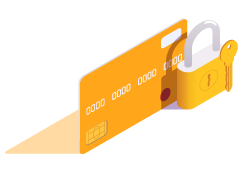
Can you move Bitcoin from an exchange to a third-party wallet of your choice? Is it expensive? Are only a select few wallets able to do this?
These are common questions for people with minimal crypto knowledge. However, all of these questions have very simple answers.
Moving crypto from an exchange to a private or personal wallet is in fact very easy. You just need to understand how wallets work. In this post, you’ll also get some tips on what type of wallet you should choose if you wish to provide more security for your crypto assets.
Not all wallets are equally secure and not all transfers are favourable to the user in terms of fees.
What Is a Crypto Wallet?

A crypto wallet is essentially a software tool designed to protect/store cryptocurrencies. A Bitcoin wallet is usually a wallet designed primarily for Bitcoin users. Some can hold additional currencies too.
However, crypto wallets are actually means of communication with the blockchain. They don’t actually store your coins in the way traditional wallets store fiat currency.
Think of it this way. Bitcoin is the currency you use to make various payments. The wallet is the tool that allows you to conduct transactions in currency (for selling, buying, or receiving donations).
Crypto wallets come in a variety of forms. There are variations of software-based wallets and hardware-based wallets. Each comes with its own list of pros and cons. And yet, Bitcoin wallets fall under two overall categories. (The same applies to other crypto wallets.)
The Two Types of Crypto Wallets
There are two main categories of crypto wallets. Both of which have the same core functionality of communicating with the blockchain.
Yet, there are clear differences in how each type of wallet works and what they offer.
Exchange Wallets
A Bitcoin exchange wallet is a wallet that you get as soon as you sign up on a cryptocurrency exchange. It shows you your balance and facilitates quick trading on that exchange. Your trades can be for other crypto coins or fiat currency.
For example, if you’re to create a new account on a crypto exchange market, you’d add funds via your bank account or credit card. Then you buy Bitcoin. You get immediate access to your crypto funds. However, they’re not sent to your personal wallet.
In its stead, they’re held in the wallet hosted by the exchange and unique to your account. This type of wallet doesn’t need backups, it doesn’t need any micromanaging on your part, as it’s very similar to how banking apps work.
The exchange, in this case the bank, is the one holding all your crypto funds. That said, with the wallet, you have access to and can control your funds however you want.
The good news is that crypto exchanges aren’t regulated in the same way as banks.
Private Wallets
This type of wallet is oriented towards storing coins. It usually features additional security features. You can receive Bitcoins directly to your private wallet from merchants, traders, and donors.
However, it’s not as easy to make trades from a private wallet.
What really makes a private wallet different is that you have total control. Unlike with an exchange wallet, you control your own private keys.
If you really think about it, having an exchange wallet is almost like having no wallet at all. The exchange (bank) has the wallet. It’s more like an account. You’re only able to access a certain amount of funds from that wallet – through your account.
In contrast, with a private wallet, you’re in complete control.
Your private Bitcoin wallet can be completely invisible and inaccessible by third-party offenders. Hardware physical wallets are the best in terms of security. That’s because they don’t have to be kept online until you actually use them.
So, unlike having your Bitcoins stored on the exchange, any coins stored in a private wallet are not under theoretical threat. But that may also depend on the type of private wallet, as some web-based wallets are not quite as secure as exchange wallets in comparison.
The Main Reason for Owning a Personal Bitcoin Wallet

It’s for the sake of security. As you most likely know, there have been plenty of crypto thefts over the years. Many cryptocurrency users and investors lost fortunes and never got back their Bitcoins.
What do most of these thefts have in common? They tend to happen on crypto exchange markets, which lack the security of private wallets for a variety of reasons.
Can You Move Bitcoin from an Exchange to a Private Wallet?

Yes, you can. It’s just a matter of using your private wallet’s address as the recipient address when moving crypto out of your exchange wallet.
Different exchange wallets have different UIs. However, they’re quite similar when it comes to withdrawing funds or transferring crypto.
To withdraw Bitcoin, start by logging into your exchange account. Go to either your Dashboard or Account Details page and select your BTC wallet.
Press the Send or Transfer button. In the recipient box, type in or copy paste the address of your private wallet. Make sure you set an amount. You can withdraw all your crypto or just partial amounts.
Some people keep some funds in their exchange wallets for easier trading and simply transfer small spending amounts of crypto to their private wallets.
You can also make a note of your transaction. However, since you’re moving money to your own address, there’s hardly a need for that.
How to Get Your Bitcoin Address?

If you’re using a mobile app or browser-based wallet, you have to open it. Usually, the unique Bitcoin address will be listed on the first page. Copy paste that address or write it down so that you can use it later on your exchange.
Do Exchange-to-Private Wallet Transfers Require Authentication?
They do. Each exchange will have its own combination of transactional authentication factors. The most common would be typing in a passphrase and retrieving a code sent to you via phone. This is done to verify your identity and ensure that you’re the one moving funds, not someone else.
Do Bitcoin Transfers Outside the Exchange Carry Fees?

Most exchanges have transaction fees. Fees may be applied when you first supply your account with fiat currency to buy crypto on the exchange. Other fees can be applied when buying or selling crypto.
And, you’ll even notice some fees when moving crypto from the exchange wallet into your private Bitcoin wallet.
As you might expect, the fees aren’t always the same. Each exchange exercises its own fees, whether fixed or percentage-based. Furthermore, moving Bitcoin tends to be pricier than moving lower value coins like XRP, Litecoin, Ethereum, and others.
How Long Does It Take to Transfer Bitcoin from an Exchange to a Private Wallet?
This can vary a bit. Typically, smaller sums often go through faster. The more crypto you move the slower the transfer.
That said, it also depends on the time of day. Certain periods are known to be slower in transaction speeds. When the network is very loaded, your transfer may take considerably longer.
In some cases, you may have to wait up to half an hour for your Bitcoins to show in your private wallet.
Do You Lose Money on Late Transactions?

Some currency exchanges work in a very unfavourable way. Imagine that you set a Bitcoin trading price. You want to sell when it reaches a certain value. But because transaction times can sometimes be delayed, you might end up selling at a different price. (But that’s true of all exchange transactions including stocks and commodities – the current price is based on the last executed trade, so the next selling transaction will depend on the highest bid price available, or the next buying transaction and the lowest ask price available. And it’s not unusual for exchanges to make money off the spread too.)
That’s why not all exchanges are equally great for trading crypto.
That said, this won’t affect the amount of Bitcoin you send from your exchange wallet to your private wallet. When you’re transferring a fixed amount of Bitcoin, that’s exactly what you’ll receive in your private wallet.
Some exceptions may occur in the following situation.
You put in a transaction order to move some Bitcoin from your exchange account to your private Bitcoin wallet. It takes more than 20 minutes for the transfer to go through.
However, instead of typing in how many BTC you want to send, the exchange will ask you to list how much fiat currency you want to transfer. The exchange then does the conversion into BTC for you at its current market price.
It’s possible to lose some money in this type of situation if the value of the coin drops while the transaction takes place. It’s also possible that you’ll receive fewer BTC in your private wallet than you initially wanted to send.
Note that it doesn’t happen too often. And rarely if ever on the world’s leading crypto exchanges that are designed to avoid these situations.
How to Transfer Bitcoin to a Private Hardware Wallet

Contrary to popular belief, you don’t have to be online or connected to receive Bitcoin or any cryptocurrency. All you need is a valid address, preferably one that only you have access to.
Your wallet doesn’t have to be online. It can be in your bottom desk drawer for the next five months. As long as it generated a valid address, all transactions to that address will go through.
Follow the same steps mentioned before for the software Bitcoin wallets. Type the address generated by your hardware wallet into your exchange wallet when you select a recipient.
The only reason to connect or use your hardware BTC wallet is to generate the keys required to authenticate outgoing transfers. And to check your balance of course.
That’s also the beauty of paper wallets and why they work. All you need is to generate keys and addresses that are unique and will be recognized on the blockchain. You don’t actually need an internet connection on your wallet to receive funds.
You won’t need one to send Bitcoin either, if you’ve memorized the private and public keys. That said, with some hardware wallets you’ll need to connect them before you can move your assets.
Can You Do This on All Exchanges?

The answer is yes. All exchange websites are obligated to have a crypto withdrawal feature. Those that don’t would inevitably have a very small user base.
What may not be always available is transferring crypto from one exchange to another. Yet, most exchange platforms allow you to bring crypto from other exchanges.
Of course, transaction fees also apply in these situations and they may differ from one platform to the next.
Additional Tips on Cashing Out Bitcoin

You may also want to know that cashing out your Bitcoins isn’t always easy. Some exchanges offer very limited payment and withdrawal options. Most are chosen for their lack of anonymity features.
But, you can always cash out however much you want and keep those transactions private if you use a Bitcoin ATM. Moreover, not all crypto ATMs require you to provide identifying documentation when buying crypto or when cashing out.
Among the drawbacks, transaction limits may be placed on those who choose to take the anonymous route. BTC ATMs are also known to have high transaction fees, for they’re not regulated like banking ATMs.
To maximize your profits, it’s best to convert your crypto into fiat money from an exchange. You can then send the money to your credit card or bank account. Some exchanges offer PayPal support too.
Always Use a Private Wallet for Additional Security

As already mentioned, exchanges are often the targets of attacks. Personal Bitcoin addresses or hardware wallets not so much. If you want long-term safe storage for your Bitcoins and altcoins, using a cold storage option is your best bet.
Just remember that it doesn’t come free. Like how traditional banks and the exchanges of other investment assets operate, crypto exchanges put fees on just about any transaction.